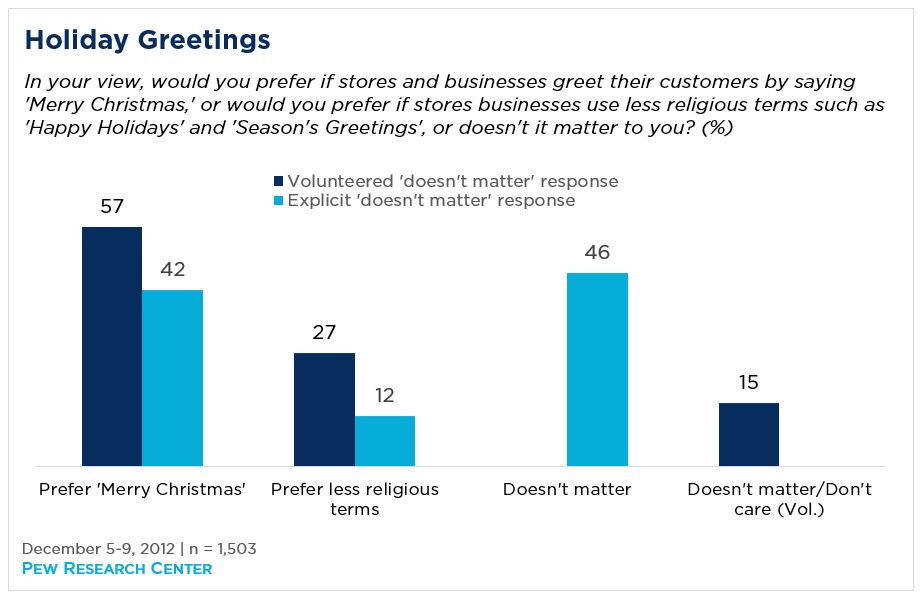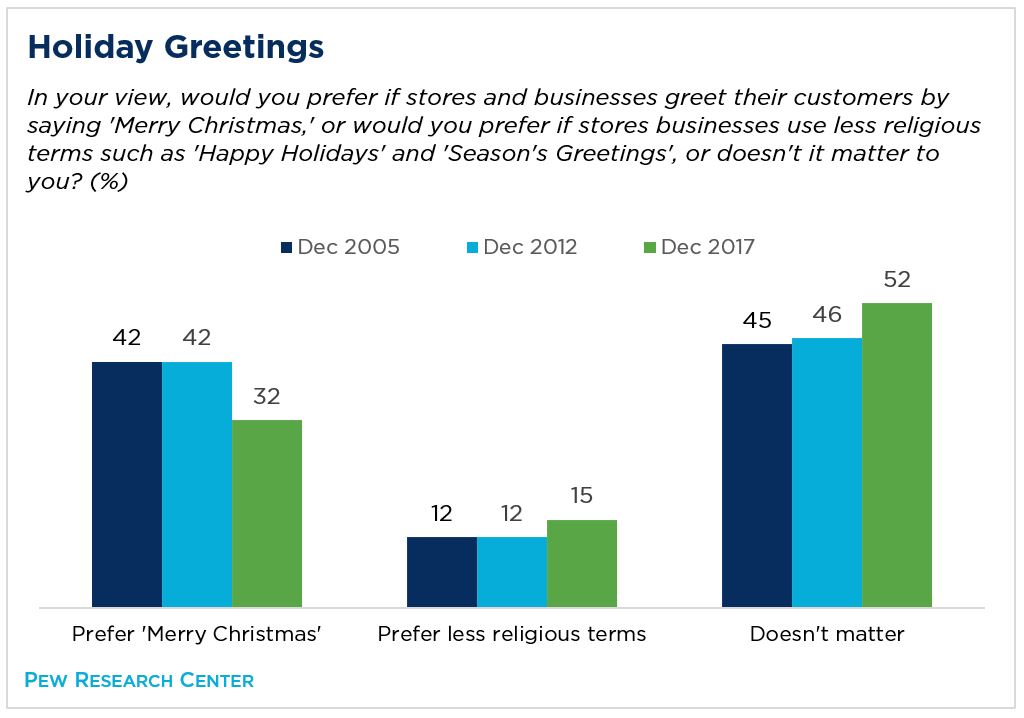We Wish You A Merry Explicit DK/NR Response

Polling on holiday greetings dates back to 2004, when Fox News host Bill O’Reilly launched the "War on Christmas" narrative into American society. But which holiday greetings do Americans prefer?
Public opinion on holiday greetings
With December comes a month of holiday greetings with friends, in the workplace, and in shops and stores. The first polling on holiday greetings dates back to December 2004, when Fox News host Bill O’Reilly single-handedly launched the "War on Christmas" narrative into American society. Since then, pollsters have asked questions about Americans’ preferred holiday greetings and their views on how businesses should greet their customers.
But which holiday greetings do Americans prefer, and how do you best ask Americans about their greeting preferences? In 2012 the Pew Research Center fielded a telephone survey designed to answer just that question, giving pollsters a wonderful holiday gift to unwrap. And in addition to guiding us in appropriate salutations, the survey also provided an interesting methodological learning moment: how does providing respondents with an explicit ‘doesn’t matter’ reply affect how Americans respond to the question?
The poll used a split-sampling approach, asking half of respondents one version of the question, and the other half a different version. The difference between the two questions was a simple one. In one version, respondents were given the choice between preferring Merry Christmas or less religious terms, and could volunteer an additional response if they felt it didn’t matter to them. In the alternate version, respondents were read ‘doesn’t matter’ as a third, explicit option. The results highlight the importance of these sorts of experiments in public opinion research.

When Americans are asked to choose between the two types of greetings, without an explicit third choice, a majority (57%) say they prefer that stores and businesses greet their customers by saying "Merry Christmas" rather than a less religious term such as "Happy Holidays" or "Season’s Greetings" (27%). An additional 15 percent volunteered that it didn’t matter to them.
However, the results are quite somewhat different when respondents are provided an explicit ‘doesn’t matter’ response option. In that formulation, close to half of Americans (46%) say that stores and businesses’ choice of holiday greeting doesn’t matter to them, while four in ten (42%) prefer "Merry Christmas" and one in ten (12%) prefer a less religious greeting.
The different responses in the two survey questions tells us both about American opinion and how best to ask about it. Because the change in support for the ‘doesn’t matter’ response drew equally from the other two response options, it suggests that roughly a third of Americans have weak preferences on holiday greetings, and also that their responses in a forced-choice question do not lean one way or another.
It also tells us that a question with an explicit "doesn’t matter" option is a good one to use for this issue. And that’s what Pew chose: when they asked again about holiday preferences in 2017, they used the question format with an explicit "doesn’t matter" reply. Merry Surveymas to you all!


